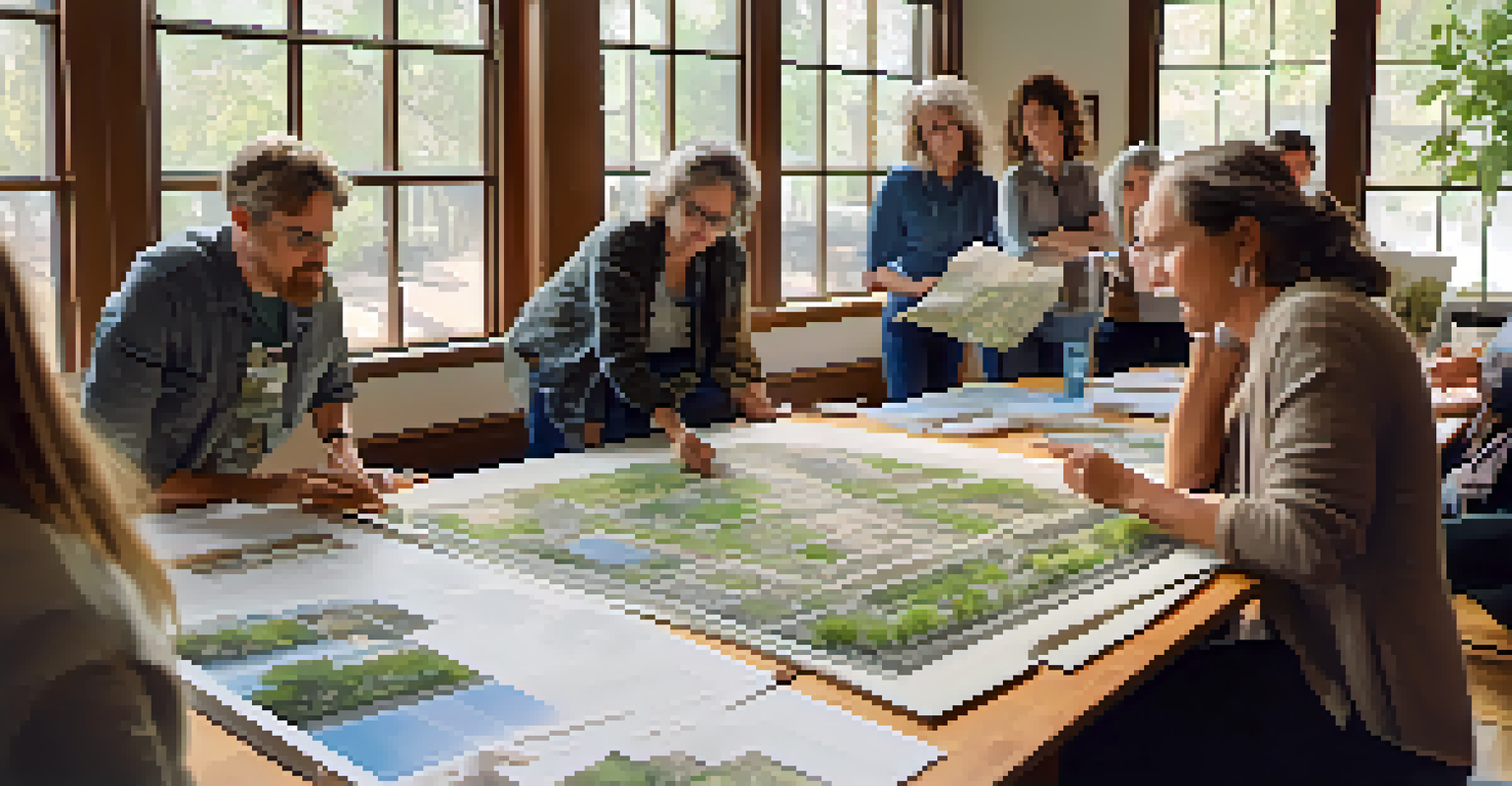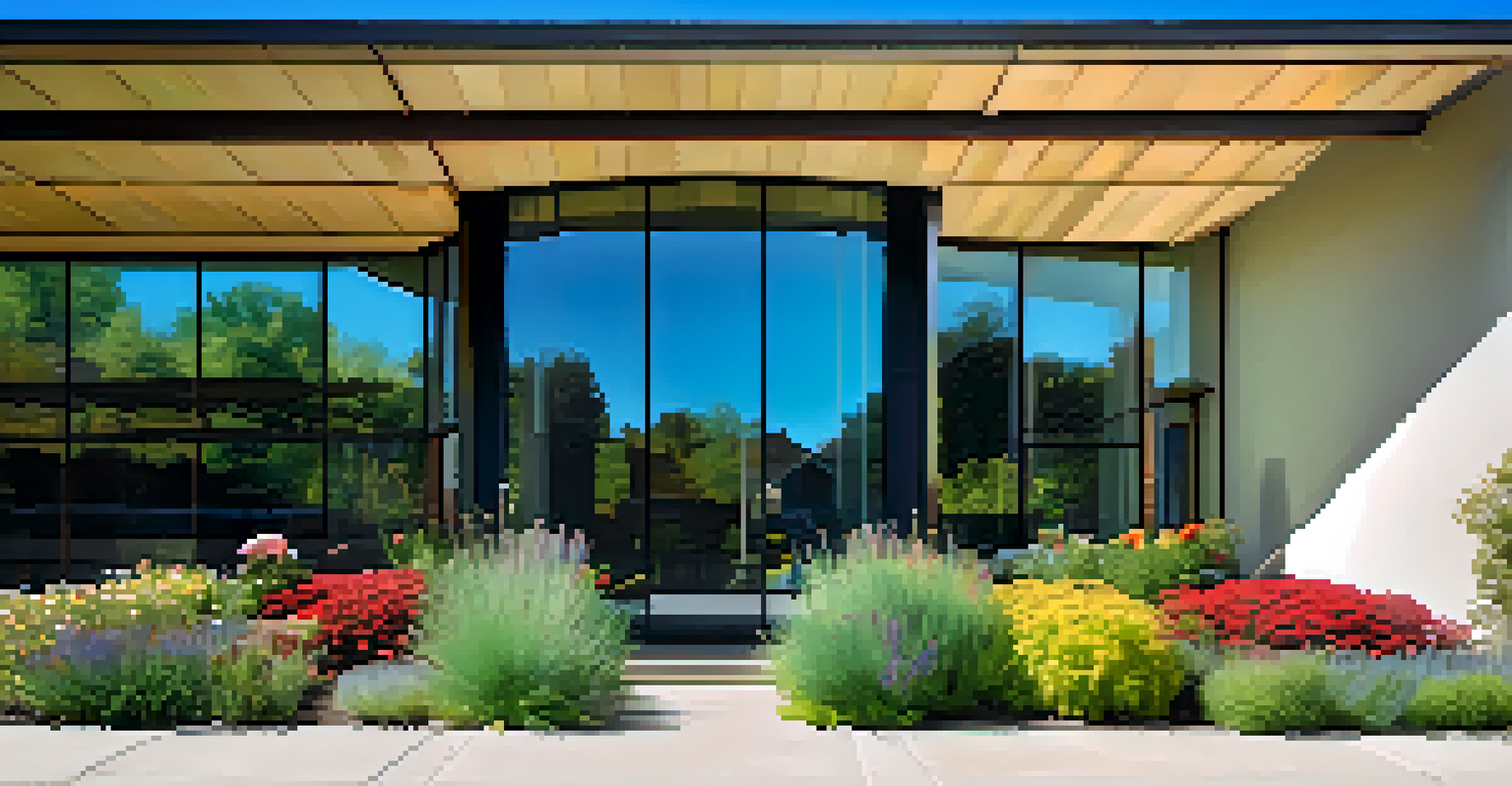Exploring Historic Preservation Funding in Boulder, Colorado

Understanding Historic Preservation in Boulder
Boulder, Colorado, is known for its stunning landscapes and rich history, which is reflected in its architecture. Historic preservation is the process of protecting and maintaining these significant structures and sites, ensuring that future generations can appreciate them. In Boulder, preserving historical sites not only honors the past but also contributes to community identity and tourism.
Preservation is a form of stewardship. It is our responsibility to protect our cultural heritage for future generations.
The city is home to a variety of historic buildings, from Victorian homes to mid-century modern structures. Each of these tells a story about the people and events that shaped Boulder. By understanding the importance of these sites, residents and visitors alike can better appreciate the city's unique character.
Moreover, the preservation of historical sites can have economic benefits, enhancing property values and attracting businesses that resonate with the community's heritage. This makes historic preservation a vital aspect of Boulder's planning and development strategies.
The Importance of Funding for Preservation Efforts
Funding is crucial for effective historic preservation, as it often requires significant financial resources to maintain and restore buildings. In Boulder, various funding sources exist to support these efforts, including government grants, private donations, and nonprofit organizations. Without adequate funding, many historic sites may fall into disrepair, risking their loss forever.

Preservation projects can be costly, involving everything from structural repairs to compliance with historical standards. Therefore, understanding the funding landscape is essential for anyone looking to engage in preservation efforts. Access to these funds can make the difference between a building's restoration and its demolition.
Historic Preservation's Community Impact
Preserving historic sites in Boulder enriches community identity and boosts tourism.
Additionally, securing funding can also involve community support and engagement. When a community rallies around a preservation project, it not only helps in raising funds but also fosters a sense of pride and ownership among residents.
Local Grants and Funding Opportunities
In Boulder, several local grants are available specifically for historic preservation. The City of Boulder’s Historic Preservation Program offers funding opportunities for restoration and rehabilitation projects. These grants are often competitive but are designed to assist property owners in preserving their historical assets.
Historic preservation is not just about saving buildings; it's about preserving the stories of our communities.
Additionally, organizations like the Boulder Historical Society play a pivotal role in advocating for and distributing funds for preservation efforts. They often collaborate with local government to identify key projects that need financial support. This partnership helps ensure that historical sites receive the attention and resources they deserve.
Moreover, local businesses and philanthropic individuals often contribute to preservation funds, recognizing the value of maintaining Boulder's historical integrity. Engaging the community in these efforts can create a robust support system for securing necessary funds.
State and Federal Funding Options
Beyond local grants, Boulder residents can also explore state and federal funding options for historic preservation. The Colorado State Historical Fund provides substantial grants for preservation projects across the state, which can be a game-changer for larger initiatives. These funds are generated from the state’s gaming revenue, making them a unique resource for preservation efforts.
On the federal level, the National Park Service offers tax incentives and grants for historic preservation. These programs are designed to encourage property owners to invest in maintaining their historic structures while alleviating some of the financial burdens that come with such projects.
Funding is Vital for Preservation
Securing adequate funding from local, state, and federal sources is essential for maintaining Boulder's historic buildings.
By tapping into these state and federal resources, Boulder's preservationists can access a wider pool of funding. This not only enhances the financial viability of their projects but also strengthens the connection between local, state, and national efforts in preserving America's history.
The Role of Nonprofit Organizations
Nonprofit organizations are integral to Boulder's historic preservation landscape. Many of these organizations focus on raising awareness, educating the public, and securing funding for preservation initiatives. They often host events and workshops to engage the community and promote the importance of preserving local history.
For instance, nonprofits like Historic Boulder work tirelessly to advocate for the protection of historic buildings and landscapes. They provide resources and support to property owners looking to restore their homes or businesses while navigating the complex preservation process. This kind of grassroots support can be invaluable in mobilizing community action.
Moreover, these organizations often collaborate with local governments and businesses to develop funding strategies. By pooling resources and expertise, they can create more impactful preservation campaigns that benefit the entire community.
Volunteer Opportunities in Preservation
Volunteering for historic preservation projects can be a rewarding way for community members to get involved in Boulder's heritage. Many local organizations rely on volunteers for everything from fundraising to hands-on restoration work. This not only helps reduce costs for preservation projects but also fosters a sense of community and shared purpose.
Volunteers can participate in various activities, such as organizing events, conducting research, or even assisting in physical restoration efforts. Engaging with the community in this way allows individuals to connect with their city's history on a deeper level. It also provides a unique opportunity to learn new skills while making a tangible impact.
Nonprofits Drive Preservation Efforts
Nonprofit organizations play a crucial role in advocating for historic preservation and mobilizing community support.
Furthermore, volunteering can lead to greater awareness about the challenges and successes of preservation efforts. As volunteers share their experiences, they can inspire others to join the cause, creating a ripple effect of support for Boulder's historic preservation.
Promoting Awareness and Education
Raising awareness about the importance of historic preservation is crucial for garnering support and funding. In Boulder, various initiatives aim to educate the public about the value of preserving historical sites. This includes workshops, public lectures, and community events that highlight the stories behind Boulder's architectural treasures.
Educational programs can also be tailored to local schools, teaching students about their city's history and the significance of preserving it. By engaging younger generations, Boulder can cultivate a sense of responsibility and pride in their heritage, ensuring that preservation efforts continue for years to come.

Moreover, social media and digital campaigns can play a significant role in promoting awareness. Sharing success stories, historical facts, and upcoming events can engage a broader audience, encouraging more community members to participate in preservation efforts.